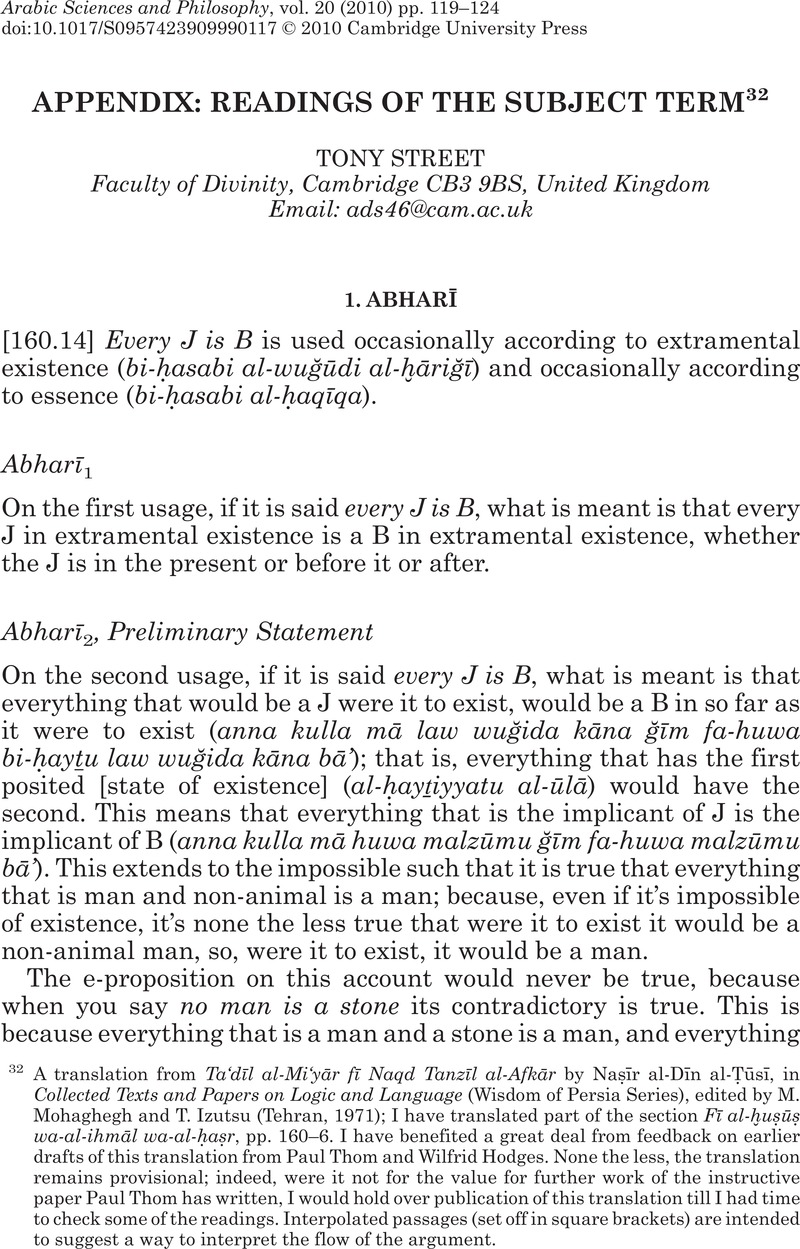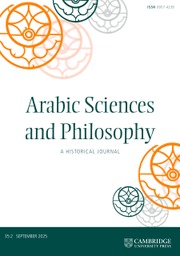Article contents
APPENDIX: READINGS OF THE SUBJECT TERM32
Published online by Cambridge University Press: 05 March 2010
Abstract

- Type
- Research Article
- Information
- Copyright
- Copyright © Cambridge University Press 2010
References
33 Reading at 161.2 muqābilan for muqābilahā.
34 The text is quoted from Kitāb al-Qiyās, al-Šifā’, edited S. Zayed (Cairo, 1964), pp. 29.7–30.3; there are minor differences between the text as given here and the one we find in the edition of Kitāb al-Qiyās. I translate only part of the text quoted by Ṭūsī, which corresponds to 29.7–29.10.
35 Following the text in Kitāb al-Qiyās, and reading from 29.7 mawğūdīn as opposed to what is found at 161.31 of Ṭūsī’s text as mawṣūfīn.
36 Reading J for D at 162.3.
37 If I understand correctly, Ṭūsī claims the phrase law wuğida is intended to rule out Alfarabi’s reading of the subject term, by which “sperm” may be included under “every man” because sperm is potentially (bi-al-quwwa) man; with the rider law wuğida, every man is to be taken as every man were it to exist as a man actually.
38 I read thus, as opposed to li-iğtimā‘ihi ma‘a naqīḍihī ‘alā al-ṣidq given at 163.15; I owe the emended reading to Wilfrid Hodges.
39 I omit the third alternative, aw ištimālan ‘alā mawḍū‘in muḥāl, a phrase which puzzles me. Perhaps it should be translated along the lines “or comprising a subject [of incompatible parts] is absurd.”
- 4
- Cited by


